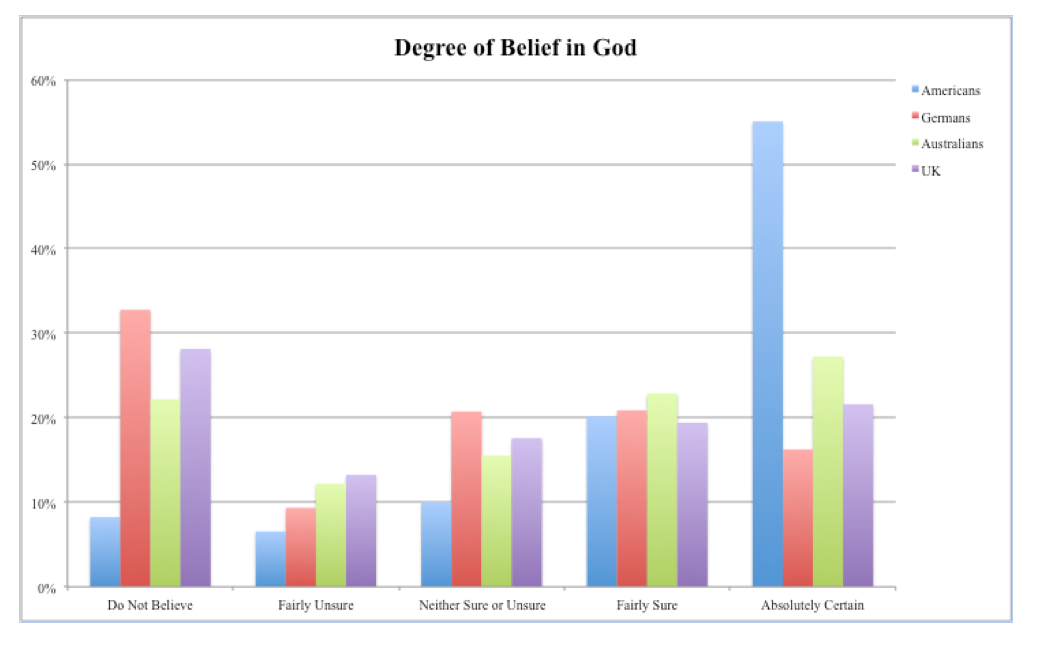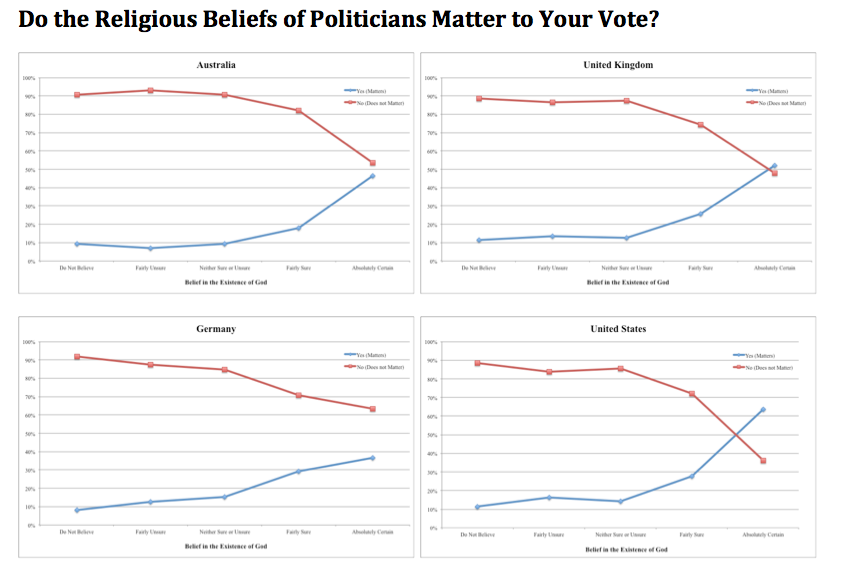The issue of religion and politics has reared its head in both the US and UK recently. In the US, the candidacy of Rick Santorum has brought to the fore his evangelical side while attempting to expose President Obama as something of deist. For Republicans the choice appears to between Catholicism and Mormonism – neither option palatable for many. In the UK, the secularists are battling it out with the supporters of religion, inspired most recently by the comments of Lady Warsi, the Conservative Party Chair, during her recent pilgrimage to Rome. Even the Prime Minister, David Cameron, piped in with his declaration of Britain as a “Christian country” at the 400th Anniversary event of the King James Bible at Oxford University. The debate over whether or not religion and politics mix has lit up the blogosphere and been a topic of debate within the major media outlets.
Reading the various to’s and fro’s of this ‘debate’ got me thinking. Is this a uniquely American or UK phenomenon? In my co-home country of Australia such a debate would be awkward to say the least. So too would it be in a country like Germany, where extremist viewpoints tend to create national crises, but one of the major parties – the CDU – is, by name, ‘Christian’ –the religion is supported directly by the state through an anachronism known as the kirchensteuer (church tax), and a pastor, Joachim Gauck, is soon to confirmed as President of the country.
But in the end, the people will ultimately determine whether religion and politics mix in a democracy. So how do the voters look on this? Is this something that appeals to the media, politicians and religious and anti-religious leaders and those with extreme viewpoints looking for a platform but does not resonate with the population at large? Or are the politicians simply a reflection of the populace, who believe that religion and politics should mix?
For the past year I have been conducting research doing large-scale measurement of different society’s economic, political and social preferences and this data provides a unique picture on this debate.
What it reveals is that Americans are, in many ways, very different in two ways.
 First, they have an extraordinary belief in god (55% expressed an “absolutely certain belief that god exists, a rate effectively double that of those in Germany, Australia and the UK). In while 22% of Australians, 28% of UK voters and 33% of Germans express an “absolutely certain” belief that god does not exist, only 8% of Americans fall into the committed atheist camp.
First, they have an extraordinary belief in god (55% expressed an “absolutely certain belief that god exists, a rate effectively double that of those in Germany, Australia and the UK). In while 22% of Australians, 28% of UK voters and 33% of Germans express an “absolutely certain” belief that god does not exist, only 8% of Americans fall into the committed atheist camp.
Second, Americans who hold “absolutely certain” beliefs about god also believe that religion matters in their political choices. In other words, while Americans believe strongly in the separation of church and state, those with strong beliefs about god believe that politicians should hold positive beliefs about god as well. So church and state may not mix but if you want to be elected it is better to take Pascal’s wager and believe in a church.
How Do the Religious Beliefs of Politicians Matter?
The UK is, however, quite different. Not only are individuals not a believing lot, they mostly hold to the viewpoint that what politicians believe do not matter to their ability to do their job. Overall, 80% of those we surveyed did not believe that the religious values of politicians mattered. This did not vary by party or location, age, income or gender. What did, however, influence this belief was whether the voter, themself, held strong religious convictions. For those that had an absolute certainty about god’s existence, more than half believed that the religious beliefs of politicians mattered. A similar effect is seen for Australians and a very weak effect for Germans – but the effect is there.
But what of those aggressive secularists that Pope Benedict derided during his visit to the UK is 2010? The data seem to indicate not only are they not a threat but that their beliefs are quite consistent with those who are more ‘agnostic’ (e.g., those uncertain about their belief in god) as well as those who are “fairly sure” that god exists. If anything, the results reveal that those with more “absolute” and certain beliefs that god exists are more radical than the general population – with the exception of the US, where they are likely to be representative of the median voter.
 What we see also explains why non-Americans like those in the UK, Germany or Australia are bemused by US politics and the influence of the religious right. The religious right is not really a fringe aspect of American politics but very mainstream. Religion matters in US politics because the majority of voters belief that this is an important facet of a politician’s persona. In Germany, the UK and Australia this is not the case. So in the UK while religious leaders call for religion to be part of the political discourse it is fairly clear why it is not. The voters do not want it to be. The same is true in Australia and Germany.
What we see also explains why non-Americans like those in the UK, Germany or Australia are bemused by US politics and the influence of the religious right. The religious right is not really a fringe aspect of American politics but very mainstream. Religion matters in US politics because the majority of voters belief that this is an important facet of a politician’s persona. In Germany, the UK and Australia this is not the case. So in the UK while religious leaders call for religion to be part of the political discourse it is fairly clear why it is not. The voters do not want it to be. The same is true in Australia and Germany.
Note: The data in this essay are from population surveys conducted in 2011 in Germany (1,446), the UK (1,592), Australia (1,443), and the USA (2,643).

Recent Comments